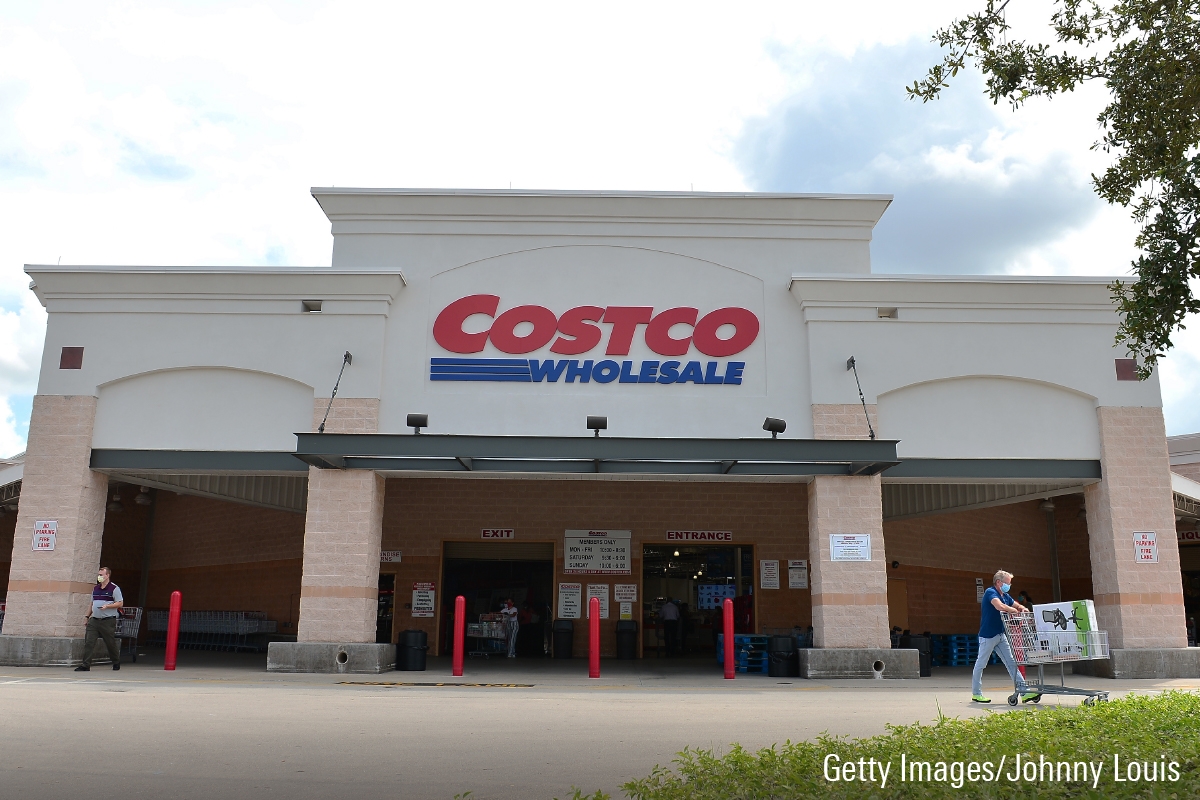After Defeating Costco, Investors Push Food Companies to Detail Greenhouse Gas Output
Here's what to know about those thorny, tough-to-monitor scope 3 emissions.

Get ready to start seeing the true environmental impact of your shopping habit, courtesy of Costco.
In an overwhelming defeat for Costco's COST management, seven out of 10 shareholders voted for the mega-retailer to adopt a more wide-ranging plan to slash its greenhouse gas emissions that cause global warming by trapping heat in the atmosphere. The retailer previously advised the shareholders to turn down the proposal at its annual proxy vote.
Consider that Kirkland cereal or 10-pack of undershirts that you like so much. The plan will require Costco to measure the emissions generated by the farmers who grew the wheat or cotton, for example, or the manufacturers who turned them into the granola or T-shirts that you put in your shopping cart. The record-keeping is mind-boggling. Costco's suppliers include PepsiCo PEP, Procter & Gamble PG, and Kraft Heinz KHC, with more listed here.
"With this vote, investors are demonstrating that they expect Costco to align with its peers by accelerating work to reduce the climate impact of its supply chains and raising the level of ambition of its emissions reduction goals," said Leslie Samuelrich, president of Green Century, the investment firm that made the successful proposal.
As of Dec. 31, 2021, Costco accounted for 1.36% of the $409 million Green Century Balanced GCBLX fund. Samuelrich said that Green Century has approached 10 other food-related companies about reporting similar information and is waiting to hear whether the companies will adopt their recommendations.
Just as the pandemic introduced arcane terms like "PPE," "PCR," and "flattening the curve" into the lexicon, climate change has its own jargon that will grow familiar. One is "science-based targets." Shareholders want Costco to adopt them. Simply, these targets fall in line with the Paris climate agreement's goal of capping global warming below 2 degrees Celsius. Another term is "net zero," which means balancing the amount of emissions going into the atmosphere with their removal, using tactics like renewable energy and reforestation.
Importantly, the proposal pushes Costco on so-called scope 3 emissions from its supply chain. (Scope 1 emissions are those that Costco generates on its own, and scope 2 are emissions from its purchases of electricity and other power.) Measuring and reducing scope 3 missions is really hard, loaded with a vast number of inputs for manufacturing, transportation, and so on.
"Costco will not have the easiest time complying," says analyst Zain Akbari, who covers Costco for Morningstar. "There are meaningful costs and uncertainties for retailers trying to trace the practices of their suppliers, and the difficulties are arguably magnified to some extent in Costco's case by its ever-changing product assortment."
But don't count Costco out: After all, it's a logistical juggernaut that built the world's fifth-largest retailer. Indeed, it carved out an ample economic moat that landed it on Morningstar's list of the best long-term investments. Over the 12 months ended Jan. 31, 2022, the stock was up 44% versus 20% for the Morningstar US Large-Mid Index.
Expect investors to push for more scope 3 disclosures. The Costco vote is the first that requested a company set targets that include emissions from its full value chain, according to Green Century.
"Scope 3 emissions will be on corporate proxy ballots," says Jackie Cook, director of the stewardship team at Sustainalytics, which rates Costco's environmental policy as weak. "Shareholders won't let companies get away with climate transition plans that don't include scope 3. The Costco outcome definitely signals this point."
Recently, Cook notes, Exxon Mobil XOM set a 2050 goal for the emissions it produces directly and from the power it buys, but it was criticized for not accounting for scope 3 emissions.
Says R. Paul Herman, CEO of HIP Investor, which oversees environmental, social, and governance separately managed accounts: "The majority of greenhouse gas emissions for many companies, especially retailers including Costco, Walmart WMT, Macy's M, Lowe's LOW, and Home Depot HD, are in their supply chain, which is captured in scope 3. Also captured in scope 3 is customer usage, so the pollution and emissions from cars and trucks using fossil fuel gasoline is also scope 3, and this includes Costco with 572 gas stations at its stores."
Green Century's proposal was part of an initiative mounted by Ceres, the shareholder advocacy group, to push for emissions cuts in food and agriculture, because the food sector accounts for nearly a third of all greenhouse gas emissions. Agriculture frequently requires clearing forests, which allows more carbon to escape into the atmosphere. Green Century notes that Costco uses palm oil, soy, cattle, cocoa, and pulp/paper in its products, which are "leading drivers of deforestation." All these pose risks to Costco and its shareholders. "Failure to keep pace with competitors and anticipate regulatory changes may pose material risks to Costco, including restricted market share, inability to meet government mandates, and reputational damage," the investment firm said.
Shareholder votes aren't binding, but investors pay close attention to see if companies follow up. Costco had already begun making improvements in its emissions disclosures since Green Century approached the company last summer.
Costco may not publish the results of its accounting on product labels, but they will be reflected in the accounting for its carbon budget. For now, the cost of compliance will be borne by consumers, predicts Morningstar's Akbari: "With other retailers facing similar considerations, the cost tide is rising for all boats, and the key for Costco is to provide its members with value relative to other sellers." At a recent $508, Costco trades above Akbari's fair value estimate of $447 a share.

/s3.amazonaws.com/arc-authors/morningstar/d53e0e66-732b-4d50-b97a-d324cfa9d1f8.jpg)
/cloudfront-us-east-1.images.arcpublishing.com/morningstar/ROHC7ZXJXZU7LIKGTTYJTD667I.png)
/cloudfront-us-east-1.images.arcpublishing.com/morningstar/TP6GAISC4JE65KVOI3YEE34HGU.jpg)
/cloudfront-us-east-1.images.arcpublishing.com/morningstar/RFJBWBYYTARXBNOTU6VL4VSE4Q.png)
:quality(80)/s3.amazonaws.com/arc-authors/morningstar/d53e0e66-732b-4d50-b97a-d324cfa9d1f8.jpg)